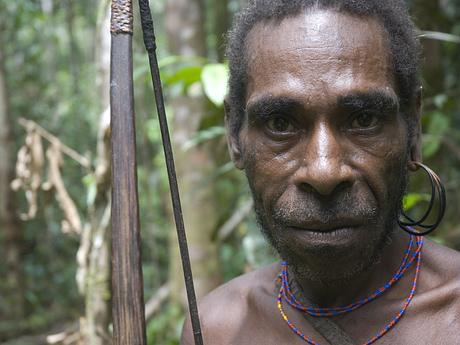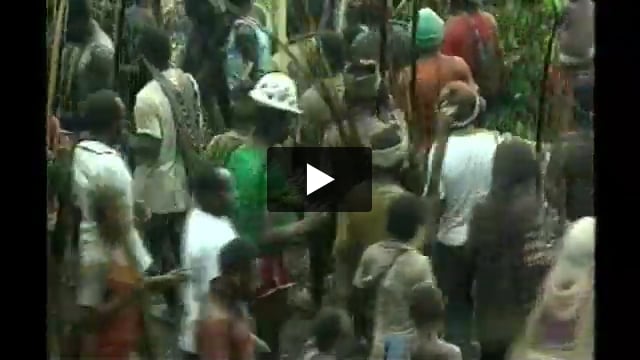Papuan bombers attack British-American mine – reprisals feared
September 30, 2008
This page was last updated in 2008 and may contain language which is now outdated.
There is more trouble for British company Rio Tinto in Indonesia – West Papuan independence fighters have attacked its Grasberg mine, which is devastating the land of the Amungme and Kamoro tribal people.
Survival is concerned that the Indonesian army may respond to the attack with reprisals on innocent tribal people in the area.
Rio Tinto holds a significant stake in the Grasberg copper and gold mine, which is owned by American company Freeport McMoRan. Rio Tinto’s involvement with this mine also hit headlines earlier this month when the Norwegian government sold its almost £500 million shares in the company due to ethical concerns over the mine’s environmental record.
Three bombs have exploded near the mine in the past weeks, apparently on the order of West Papua’s Liberation Army (OPM/TPN). In a statement, an OPM general cited the tribal conflicts caused by the mine, ongoing human rights violations and the destruction of the environment as the reasons behind the attacks.
The statement said the aim of the bombings was to close down the mine and bring international attention to the Papuans’ desire for political independence from Indonesia.
In 1996 The OPM kidnapped and held hostage for four months a group of Cambridge University students, and other members of their scientific expedition, in a bid to attract international attention to the Papuan liberation cause. The hostage taking ended in tragedy. The captors murdered two of their Indonesian hostages, and eight OPM rebels were killed during a bungled rescue operation by the Indonesian military.
The Indonesian army then unleashed a brutal military operation in the area. The result was an indiscriminate attack on innocent tribal people. Thousands of people fled from the soldiers. Eleven civilians were confirmed murdered, and others remain unaccounted for.
Soldiers burned and tore down houses and churches, destroyed crops, and killed livestock. For more than two years after the hostages were rescued, the area remained a ‘closed military area’ and more than one thousand people remained in hiding, too frightened to return to their homes.
Survival is extremely concerned that the army will respond to the recent explosions with similar violent reprisals. West Papua is closed to journalists and human rights monitors, allowing the Indonesian military to act with impunity. Survival calls on the Indonesian army to operate with the utmost restraint and to ensure that innocent people are not targeted.



